After putting my resume through an online scan, I realized the problem with using the same one for every job
First, I tracked down this job description of a Careers reporter at Business Insider.

Next, I uploaded the description text and my résumé into the scanner, pressed scan, and waited for my results...
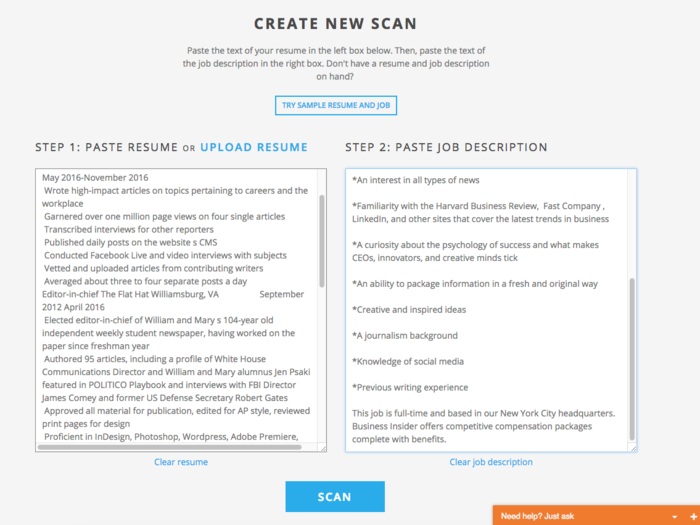
Well, yikes. My résumé only garnered a 35% match.
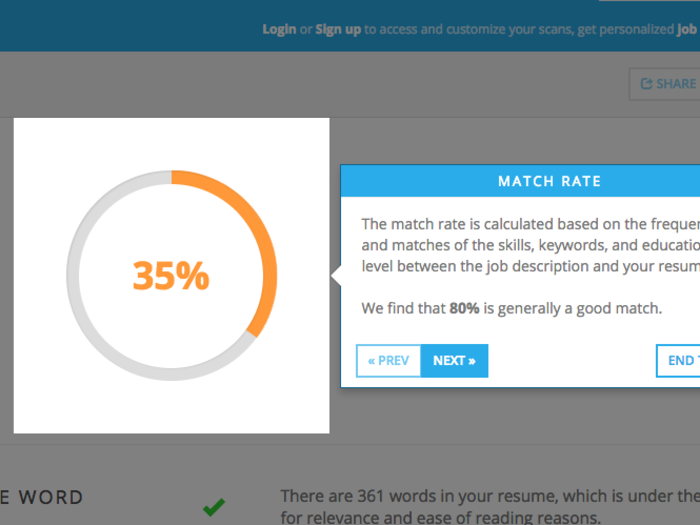
To give you a sense, an 80% match tends to indicate a pretty good fit. I guess I basically snuck into Business Insider.
In all honesty, though, I was hired as a Careers intern before I became a reporter. By the time the company decided to make me an offer, it had seen about six months of my work.
So it's important to remember that résumés aren't always king. In fact, a number of CEOs and organizations eschew résumés altogether, preferring to look at work performance over CVs. However, that doesn't help you get through the preliminary sorting of an ATS.
Fortunately, Jobscan provides you with a report, so I could figure out my résumé damage.
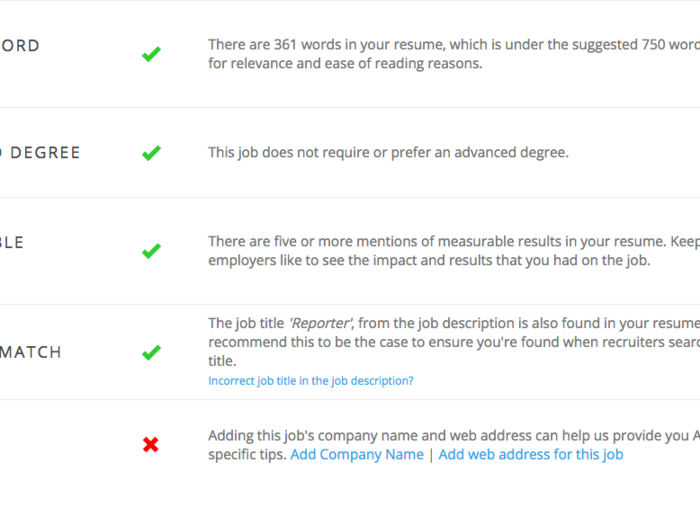
It turns out that my CV only lists one "hard skill" — journalism.
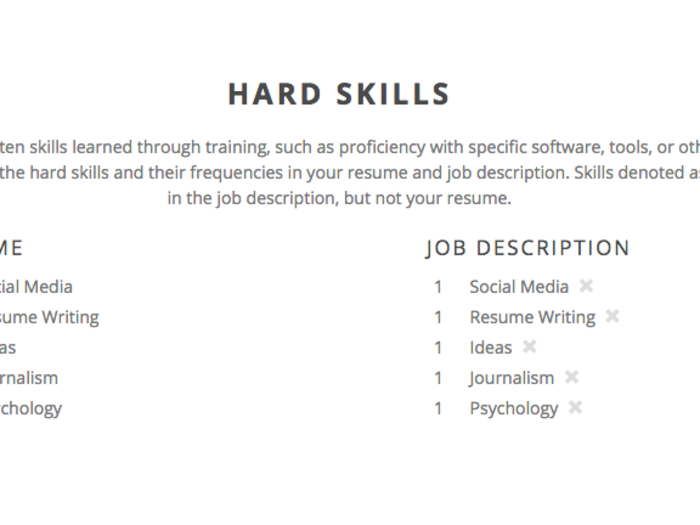
When you look at the actual job description, it mentions a bunch of different skills that I should have included, such as social media and résumé writing.
And forget about it when it comes to soft skills. I didn't list any at all on my résumé!
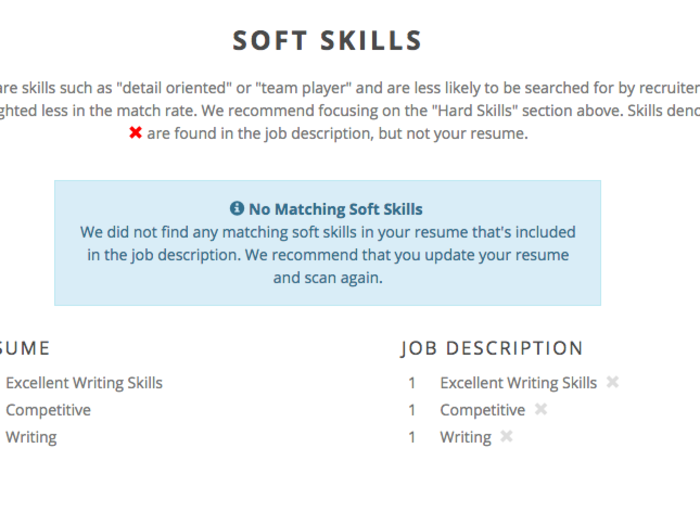
I even missed out on including the bonus keyword "business."
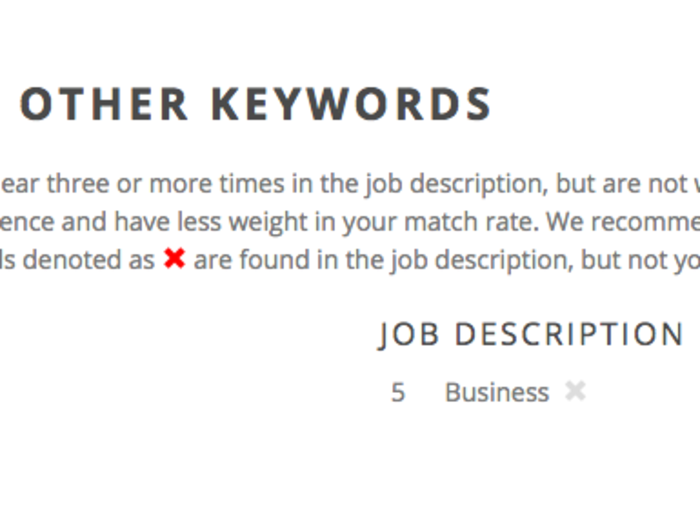
Keywords aren't everything. You could be completely qualified for a job and not have a keyword-optimal résumé (I hope). However, if you're looking to get your foot in the door somewhere, it really helps to make sure that you're getting through the company's ATS.
If all else fails, Jobscan also helpfully provides a list of recommendations for jobs that do match up with your résumé.
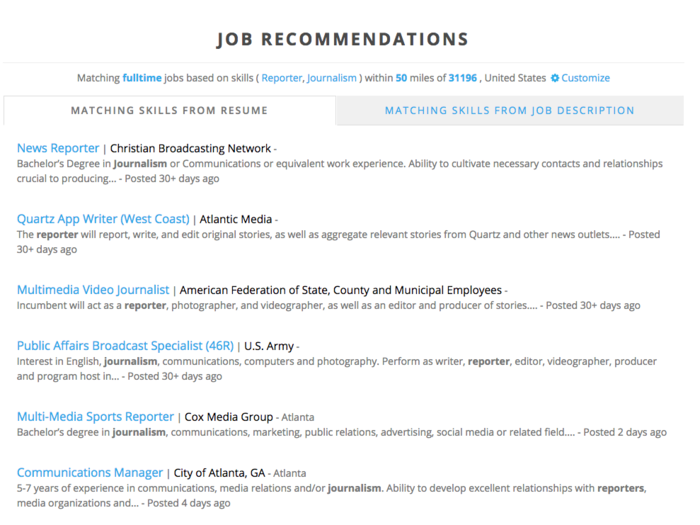
"You can improve your match rate by adding the missing keywords found from the scan, indicated by red 'x' in your scan report," Hu says. "You can also increase your match rate by matching your job title. This essentially means listing the required skills the job is asking for in case recruiters search for it. Even from a hiring managers' perspective, the recruiters or hiring managers will likely glance to see if you possess the relevant skills."
Final thoughts

So, what did I learn from scanning my CV? Well, it's really important to make certain you're tailoring your résumé to specific roles.
That doesn't mean just switching around some bullet points and tweaking the language a bit. It means lacing your résumé with keywords from the job description itself. Jobscan can help you identify some of those keywords, and thus optimize your résumé.
It's worthwhile, if it helps your application to break through the ATS and end up in front of an actual human being. Once you're there, it's up to you.
Popular Right Now
Advertisement